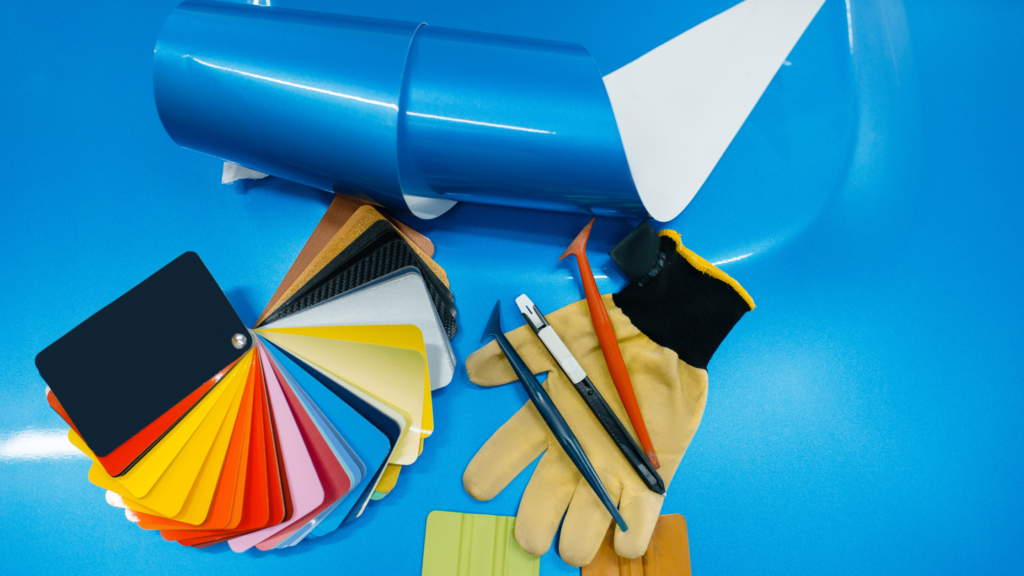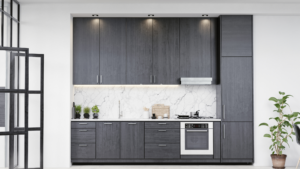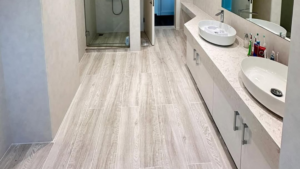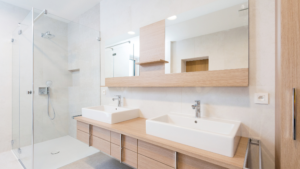Vinyl wraps have become increasingly popular across various industries due to their versatility, affordability, and aesthetic appeal. Whether you’re looking to upgrade your vehicle, transform your home or business interior, or refresh a dull surface, vinyl wraps provide a quick and effective solution. However, if you’re new to the world of vinyl wraps, you likely have questions about their application, durability, and maintenance. In this blog, we’ll cover the top FAQs about vinyl wraps to help you better understand how they can benefit your project and answer any lingering concerns you may have.
FAQs About Vinyl Wraps
When exploring the world of vinyl wraps, many questions arise, especially for those unfamiliar with this versatile product. From how long they last to whether they can be applied to various surfaces, understanding the details can help you make informed decisions. Here are the most common FAQs about vinyl wraps and their answers.
1. What Are Vinyl Wraps Made Of?
Vinyl wraps are primarily made from polyvinyl chloride (PVC), a durable and flexible material. They come in sheets that can be applied to various surfaces, providing a protective layer while enhancing the appearance. Vinyl kitchen wrapping is available in a variety of finishes, including matte, gloss, satin, and textured styles like carbon fiber or wood grain.
2. How Long Do Vinyl Wraps Last?
One of the most common FAQs about vinyl wraps is related to their lifespan. The longevity of a vinyl wrap largely depends on the quality of the material used, the surface it’s applied to, and how well it’s maintained. On average, high-quality vinyl wraps can last anywhere from 5 to 7 years, with some lasting even longer under ideal conditions. Proper care, such as cleaning the surface regularly and avoiding harsh chemicals, can extend the lifespan of your vinyl wrap.
3. Can Vinyl Wraps Be Applied to Any Surface?
Vinyl wraps are incredibly versatile and can be applied to a wide range of surfaces. This includes:
Vehicles (cars, trucks, motorcycles)
Walls (interior and exterior)
Furniture (tables, countertops, cabinets)
Windows and glass surfaces
Appliances
Elevators
One of the FAQs about vinyl wraps often asked is whether they can be applied to textured or uneven surfaces. While smooth surfaces provide the best results, vinyl wraps can also be applied to mildly textured surfaces with proper preparation and installation techniques.
4. How Is a Vinyl Wrap Installed?
The process of installing vinyl wraps is straightforward but requires attention to detail. Here’s an overview of the steps involved:
Surface Preparation: The surface must be cleaned and free of dirt, grease, or imperfections to ensure a smooth application.
Measuring and Cutting: The vinyl wrap is measured and cut to fit the specific dimensions of the surface.
Application: The vinyl wrap is carefully applied, starting from one side and smoothing it down to avoid air bubbles and wrinkles.
Finishing Touches: Once the wrap is applied, the edges are sealed, and any excess material is trimmed.
Professional installation is recommended for large or complex surfaces, but smaller DIY projects can be done with the right tools and patience.
5. Are Vinyl Wraps Waterproof?
Yes, vinyl wraps are waterproof, making them ideal for both indoor and outdoor applications. This is why they are commonly used on vehicles, as they can withstand rain, snow, and even UV rays. However, it’s important to note that while the material itself is waterproof, proper installation is key to ensuring no water gets trapped underneath the wrap, which could lead to peeling or damage over time.
6. Can Vinyl Wraps Be Removed Easily?
A frequent question in about vinyl wraps is whether they can be removed without damaging the surface underneath. Vinyl wraps can indeed be removed relatively easily, especially when done by professionals. When the wrap is heated during the removal process, the adhesive softens, allowing the wrap to peel off cleanly without leaving residue or causing damage to the underlying surface. This makes vinyl wraps a great option for temporary projects or for businesses that like to update their look frequently.
7. How Do I Maintain a Vinyl Wrap?
Proper maintenance is key to ensuring the longevity and appearance of your vinyl wrap. Here are some tips for keeping it in top condition:
Regular Cleaning: Clean the wrap with a mild soap and water solution. Avoid using harsh chemicals or abrasive materials that could damage the surface.
Avoid Power Washing: While vinyl wraps are durable, high-pressure washing can cause edges to lift and lead to premature wear. Stick to hand washing for vehicles and interior surfaces.
Protection from Extreme Heat: For exterior applications, avoid prolonged exposure to direct sunlight or extreme temperatures, as this can cause fading or shrinking over time.
Maintaining your vinyl wrap properly will help it last for years and keep it looking as good as new.
8. Can Vinyl Wraps Be Used for Branding Purposes?
One of the growing uses for vinyl wraps is for branding, especially in commercial spaces like restaurants, hotels, and retail stores. Whether you want to apply your logo to a wall, customize your storefront windows, or create an eye-catching vehicle wrap for mobile advertising, vinyl wraps provide a cost-effective way to enhance brand visibility.
With so many customization options, it’s no wonder why branding is a common topic about vinyl wraps. You can incorporate colors, patterns, and logos that align with your brand’s identity, creating a professional and cohesive look across different surfaces.
9. How Much Do Vinyl Wraps Cost?
The cost of vinyl wraps varies based on the size of the project, the type of vinyl used, and whether you opt for professional installation. On average, the cost can range from a few hundred to several thousand dollars, depending on the complexity of the design and the surface area being covered. While this may seem like a significant investment, it’s much more affordable than traditional renovation methods, such as repainting or resurfacing.
10. Why Should I Choose Vinyl Wraps Over Paint?
One of the most common FAQs about vinyl wraps is why someone would choose a wrap over traditional paint. Here are a few reasons:
Cost: Vinyl wraps are generally more affordable than a high-quality paint job, especially for large surfaces.
Flexibility: Wraps offer more design options, including textures and finishes that paint can’t replicate.
Reversibility: Vinyl wraps can be removed easily if you want to change the design or revert to the original surface.
Durability: Wraps are resistant to chips and scratches, making them more durable in high-traffic areas.
Why Choose Yalla Wrap It for Your Vinyl Wrap Needs?
At Yalla Wrap It, we are experts in vinyl wraps, offering high-quality materials and professional installation services. Whether you’re looking to wrap a vehicle, a commercial space, or your home interior, we provide personalized solutions tailored to your needs. With years of experience, we can answer all your FAQs about vinyl wraps and ensure your project is completed to perfection.
Conclusion
Vinyl wraps are a versatile, cost-effective, and durable solution for a wide variety of projects, from vehicle customization to interior decor. By answering the top FAQs about vinyl wraps, we hope you now have a clearer understanding of how vinyl wraps can work for your business or personal use. Whether you need a quick surface update or a long-term branding solution, vinyl wraps offer endless design possibilities. Yalla Wrap It is here to help with your vinyl wrapping or bathroom wrapping needs, offering professional services to ensure the best results for your project.
Related Articles
Can You Vinyl Wrap Kitchen Appliances?
Is Kitchen Vinyl Wrap Heat Proof? A Comprehensive Guide for Dubai Homeowners
Is Granite Countertop Vinyl Wrapping the Solution for Your Kitchen Renovation?







